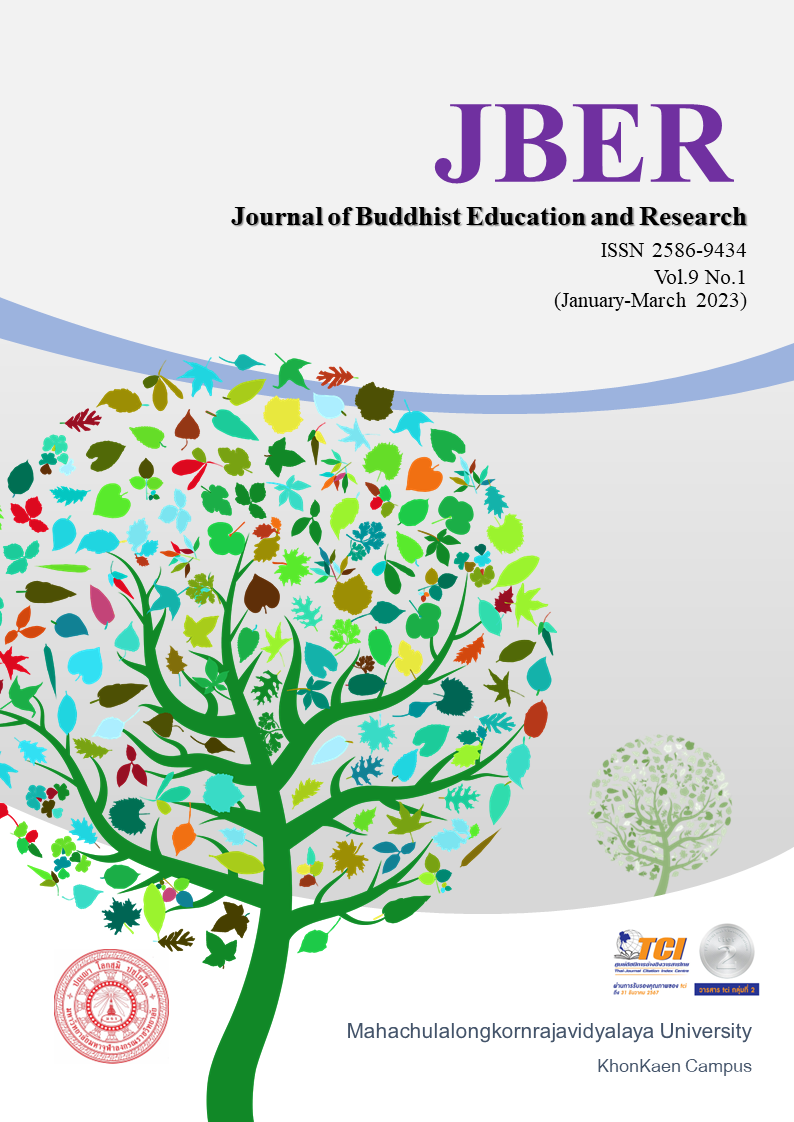Addressing Globalization in Thai Social Studies: Opportunities and Challenges for Educators
Keywords:
Globalization, Social studies education, Thai education, Global citizenship, Curriculum reformAbstract
This paper explores the impact of globalization on Thai social studies education, focusing on both the opportunities and challenges faced by educators. Globalization offers significant potential for enhancing students' understanding of interconnectedness, fostering global citizenship, critical thinking, and cultural awareness. However, Thai educators face challenges in balancing global perspectives with the preservation of local culture and identity, as well as overcoming systemic barriers such as limited resources and traditional teaching frameworks. By integrating innovative teaching strategies like experiential learning, Sustainable Development Goals (SDGs), and digital tools, educators can create a more inclusive, globally conscious curriculum. This paper also discusses the need for professional development, collaboration with international institutions, and curriculum reform to address the complexities of globalization within the Thai educational system.
References
Amnuay, T., & Setti, L. J. (1973). Education in Thailand. https://play.google.com/store/books/details?id=91MOAAAAIAAJ&source=gbs_api
Apichat, S. (2020). The scenario for the social studies curriculum of the Rajabhat Universities in the next decade. Chiang Mai University. https://archive.lib.cmu.ac.th/full/T/2020/edss10420asuk_full.pdf
Ashling, C., & Crosta, N. (2022). Technology and disability: Trends and opportunities in the digital economy in ASEAN. Economic Research Institute for ASEAN and East Asia (ERIA). https://www.eria.org/uploads/media/Research-Project-Report/RPR-2022-14/Technology-and-Disability-Trends-and-Opportunities-in-the-Digital-Economy-in-ASEAN.pdf
Asia & ASEAN Center for Educational Research, Faculty of Education, Chiba University. (2022). Fostering excellent next generation. http://twincle.e.chiba-u.jp/jpn/AACER/data/2022_07_01.pdf#page=34
Dfid Girls’ Education Challenge Programme in Sierra Leone, Forum for African Women Educationalists, & Dart, G. (2018). Girls' access to education (GATE) Sierra Leone. https://www.semanticscholar.org/paper/2e3cde8bd07d559a85051f9bc2f43f21910a6c90
Fidelis, A. U., Sylvester, A. U., & Ele, B. G. (2024). Social studies education as a propeller for teaching global intercultural understanding. Volume 12, Number 2. https://www.mjrdp-unical.com/post/1722835390.pdf
Ghadeer, H. H. A. J., Asmuliadi, L., & Mansor, F. (2024). The impact of the fourth industrial revolution on human resources in unemployment rates from an Islamic perspective. https://www.semanticscholar.org/paper/cbee450dc88d3bc7e26fa98048dae2ca0414ea74
Haapanen, I. G. (2011). Critical hermeneutics in Thai education. Author House. http://books.google.com/books?id=bec2NoTWVJ0C&dq=Resistance+to+change+in+traditional+educational+frameworks+in+Thai+social+studies+education+on+globalization+opportunities+and+challenges+for+educators&hl=&source=gbs_api
Jaira, G. (2020). Analysis of varying opportunities in international education. Southern Illinois University Carbondale. https://opensiuc.lib.siu.edu/uhp_theses/463
Joshua, A., Sikhakhane Nwokediegwu, Z. Q., Obaigbena, A., Ugwuanyi, E. D., & Daraojimba, O. D. (2024). Integrating sustainability into graphic and industrial design education: A fine arts perspective. https://www.semanticscholar.org/paper/18ffae6a31b76cf1602a1c10491849ef2ffa5894
Malkhaz, N. (2021). Impact of complex processing on the photocatalytic properties of titanium dioxide. Premier Publishing s.r.o., No 9–10, September – October 2021, pp. 3-6. https://doi.org/10.29013/ESR-21-9.10-3-6
Maschanok, S. (2023). Non-Thai EFL teachers' perceptions and problems in integrating content into language instruction in a Thai primary school. Thammasat University. http://ethesisarchive.library.tu.ac.th/thesis/2023/TU_2023_6421042125_19416_29001.pdf
Mengyao, Z. (n.d.). Research on Chinese language education policy and Chinese language education development in Thailand. https://www.semanticscholar.org/paper/da16bd1b26ff4fb767f80fa59e529651f5319c2c
OECD, & United Nations Educational, Scientific and Cultural Organization. (2016). Reviews of national policies for education: Education in Thailand - An OECD-UNESCO perspective. OECD Publishing. https://play.google.com/store/books/details?id=sc3xDAAAQBAJ&source=gbs_api
Patcharee, C., Tin, G., Artitchai, T., Niwat, M., & Siriphorn, S. (2024). Developing the tripartite education system for the ASEAN region: A comparative analysis of three variants of the school-in-factory program at the Rajamangala University of Technology Lanna. TVET Online Asia. www.tvet-online.asia
Phan, L. H., Bao, D., & Windle, J. (2024). Vietnamese language, education, and change in and outside Vietnam. Springer. https://doi.org/10.1007/978-981-99-9093-1
Solihah, H. (2023). An implementation of the integration of knowledge into curriculum of the Faculty of Education, Fatoni University, Thailand: Perceptions, problems, and prospects. Institute of Knowledge Integration (IKI Academy). https://ikiacademy.org/uploads/0-1-202312271703679845.pdf
Somwung, P., & Siridej, S. (2005). Civic education in Thailand. http://books.google.com/books?id=MWUOAQAAMAAJ&dq=Recommendations+for+educators+and+policymakers+addressing+globalization+in+Thai+social+studies+curriculum+challenges+and+opportunities&hl=&source=gbs_api
Supitsara, S. (2023). University lecturers’ perceptions, challenges, and opportunities on global citizenship education: A case of international bachelor program in Thailand. Thammasat University. http://ethesisarchive.library.tu.ac.th/thesis/2023/TU_2023_6319030158_18232_29275
Downloads
Published
How to Cite
Issue
Section
License
Copyright (c) 2023 Author(s)

This work is licensed under a Creative Commons Attribution-NonCommercial-NoDerivatives 4.0 International License.





